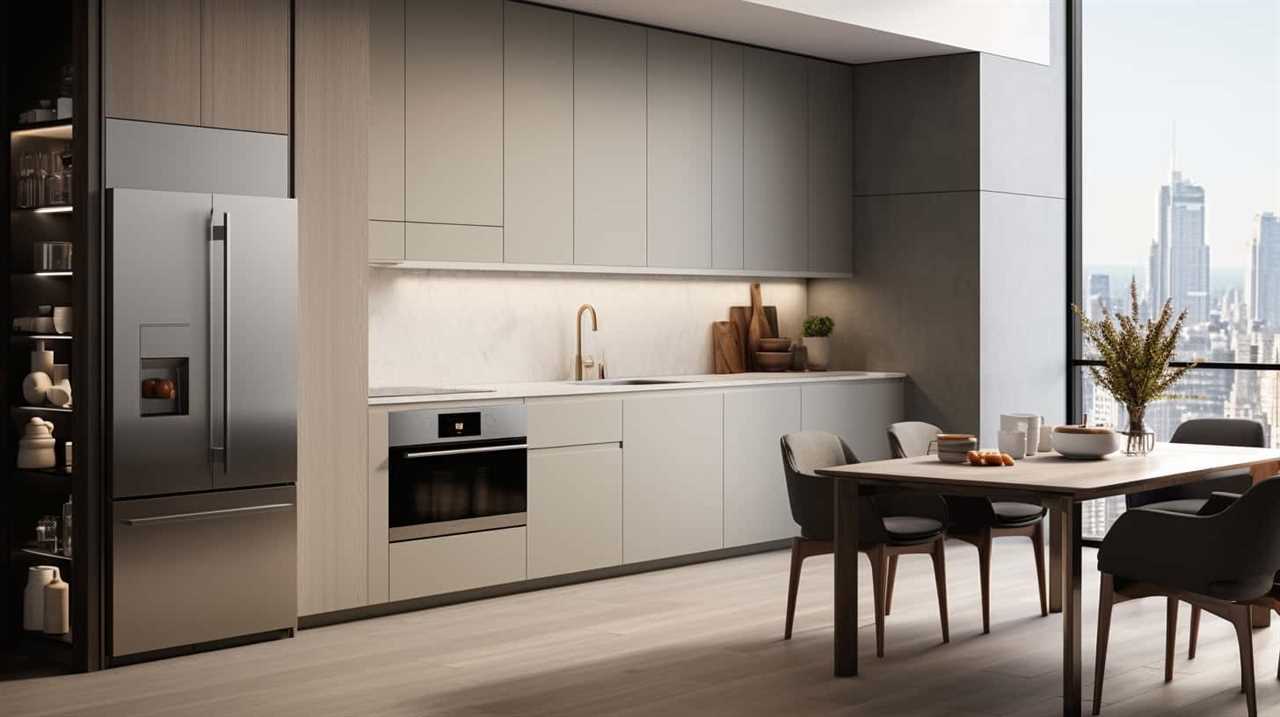Ever thought about whether appliances are included when you purchase a house? Find out the answers here.
In this article, we’ll dive into the importance of appliances in a home and explain how to understand the ‘standard’ sale agreement.
We’ll also discuss the factors that influence whether appliances are included in the sale and provide tips on negotiating for their inclusion.
So sit back, relax, and let’s explore the world of appliances and home buying together.

Key Takeaways
- Appliances play a crucial role in creating a functional and comfortable home.
- The ‘standard’ sale agreement should clearly state which appliances are included in the sale and their condition.
- Buyers may have additional expectations for appliances beyond what is included in the ‘standard’ sale agreement.
- Sellers have a responsibility to disclose the condition of appliances and ensure they are in proper working order.
Importance of Appliances in a Home
Appliances play a crucial role in our homes. When buyers are looking for a new house, they often have certain expectations regarding the appliances that will come with the property. They want to know what appliances are included and in what condition they are. This is where the seller’s responsibilities come into play.
The seller must disclose the condition of the appliances and ensure they’re in working order before closing the sale. Buyers rely on this information to make an informed decision about their purchase. It’s important for sellers to understand that meeting the buyer’s expectations regarding appliances is a key part of the selling process.
With this understanding, let’s now delve into the next section about understanding the ‘standard’ sale agreement.
Understanding the ‘Standard’ Sale Agreement
Our understanding of the ‘Standard’ Sale Agreement includes clarifying the seller’s responsibilities regarding the condition and inclusion of appliances in the house. When negotiating terms, it’s essential to consider the legal implications involved. Here are four key points to help you understand the ‘Standard’ Sale Agreement:
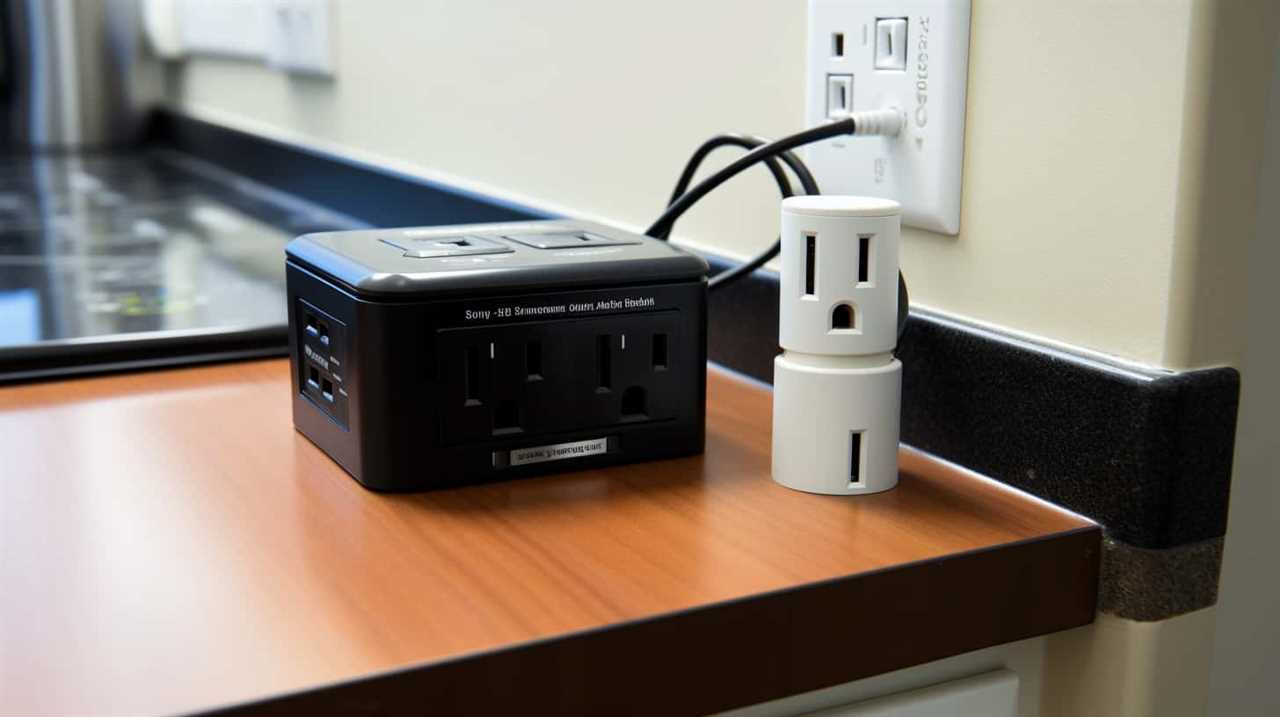
- Inclusion of appliances: The agreement should clearly state which appliances are included in the sale. This may vary depending on local customs and negotiations between buyer and seller.
- Condition of appliances: The agreement should specify the condition of the appliances being sold. Sellers are typically responsible for ensuring that the appliances are in working order at the time of closing.
- Appliance warranties: Buyers should inquire about any existing warranties on the appliances. These warranties may be transferred to the new owner, providing added protection.
- Disclosure of appliance issues: Sellers are generally required to disclose any known issues with the appliances. This ensures transparency and helps the buyer make an informed decision.
Understanding the ‘Standard’ Sale Agreement and its implications regarding appliances is crucial to avoid misunderstandings and legal complications during the home buying process.
Negotiating Appliance Inclusions
When it comes to negotiating appliance inclusions, there are a few key points to consider.
First, it’s important to understand the buyer’s expectations when it comes to appliances. Some buyers may assume that certain appliances, like the refrigerator or stove, are included in the sale.
Second, sellers have a responsibility to clearly communicate which appliances will be included in the sale and which will not. It’s crucial for both parties to have a clear understanding of what’s expected in terms of appliances during the negotiation process.

Appliance Inclusion Negotiations
In our experience, negotiating appliance inclusions is a crucial aspect of the home buying process. When it comes to appliance pricing, it’s important to do your research and have an understanding of the market value for the appliances you desire. This will give you a starting point for negotiations and help you determine a fair price.
Additionally, appliance warranties should be considered during negotiations. It’s important to inquire about the warranty status of the appliances and whether they can be transferred to the new owner. This will ensure that you’re protected in case any issues arise with the appliances after purchasing the house.
Buyer’s Appliance Expectations
We frequently consider our appliance expectations as buyers when negotiating appliance inclusions. Understanding the ‘standard’ sale agreement is crucial in determining what appliances are typically included in the purchase of a house. As buyers, it’s important to know what to expect and what can be negotiated.
While the ‘standard’ sale agreement may vary depending on the location and market conditions, there are some common appliances that are typically included, such as stoves, refrigerators, and dishwashers. However, it isn’t uncommon for buyers to have additional expectations, such as washer and dryer, microwave, or even specialized appliances like wine coolers or built-in coffee machines.

It’s essential to communicate your appliance expectations clearly during the negotiation process to avoid any misunderstandings or disappointments.
Seller’s Appliance Responsibilities
As buyers, it’s important for us to understand the seller’s appliance responsibilities when negotiating appliance inclusions. When it comes to appliances, sellers have certain obligations to fulfill, while buyers have specific rights. Here are some key points to consider:
- Disclosure: Sellers are obligated to disclose the condition and functionality of appliances in the house. This includes providing information about any repairs or replacements done.
- Inclusions: Buyers have the right to negotiate for the inclusion of certain appliances in the sale. This can be done during the initial offer or through a separate negotiation.
- Written Agreement: It’s crucial for both parties to have a written agreement outlining which appliances are included in the sale. This helps avoid any misunderstandings or disputes later on.
- Condition and Warranties: Sellers are responsible for ensuring that the included appliances are in proper working condition. Buyers have the right to request warranties or guarantees for these appliances.
Understanding the seller’s obligations and buyer’s rights regarding appliances can help facilitate a smoother negotiation and ensure a satisfactory outcome for both parties.
Factors Influencing Appliance Inclusions
When considering factors that influence appliance inclusions in a house sale, there are three main points to consider.
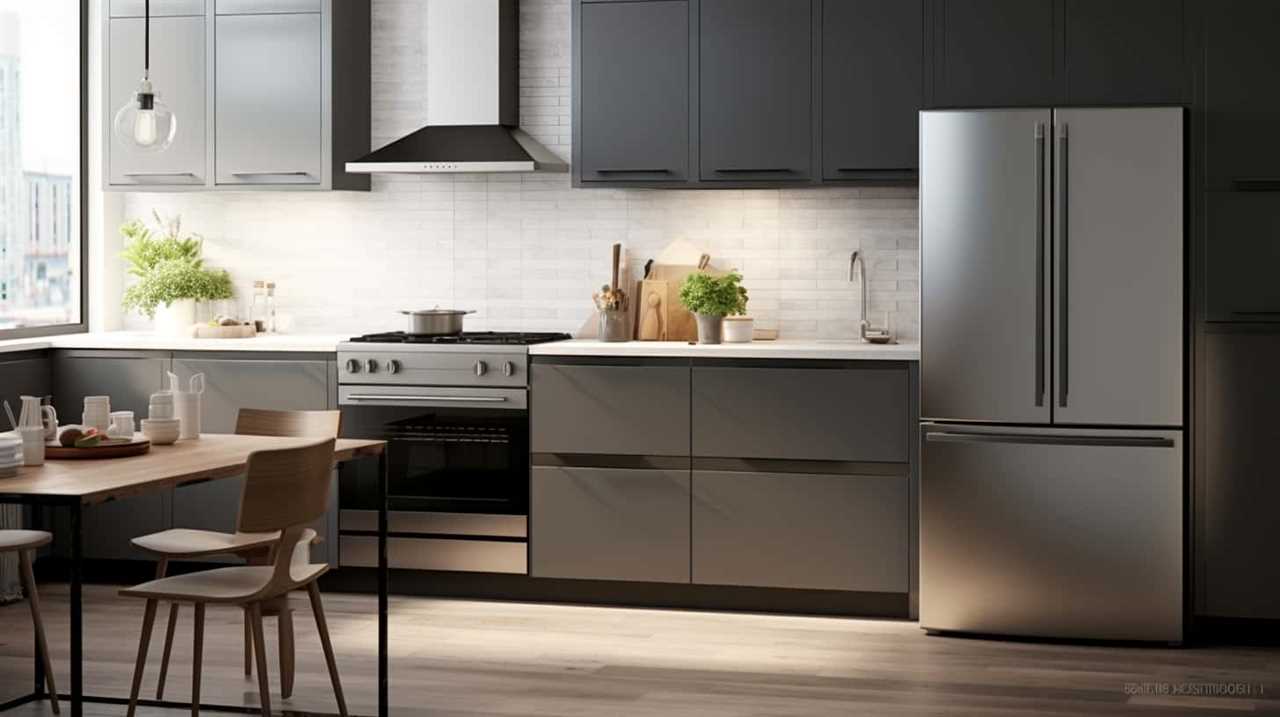
Firstly, the implications of transferring ownership play a significant role.
Secondly, negotiating appliance inclusions can be a crucial aspect of the overall deal.
Lastly, market value considerations also come into play when deciding whether to include appliances with the house.
Ownership Transfer Implications
Our research has identified several key factors that influence the inclusion of appliances when transferring ownership of a house. These factors have legal implications and can greatly impact the smooth transfer of ownership.

Here are four important factors to consider:
- Written agreements: Having a written agreement between the buyer and seller that clearly states which appliances are included in the sale can help avoid any confusion or disputes during the ownership transfer process.
- Local laws and regulations: Different regions may have specific laws and regulations regarding the transfer of appliances. It’s important to be aware of these laws to ensure compliance and a smooth ownership transfer.
- Negotiation and market conditions: The inclusion of appliances can be negotiated between the buyer and seller. Factors such as the local real estate market conditions, the buyer’s preferences, and the seller’s motivations can all influence this negotiation process.
- Condition and value of appliances: The condition and value of the appliances can also impact their inclusion in the sale. Appliances that are in good working condition and have a higher value are more likely to be included in the transfer of ownership.
Considering these factors can help both buyers and sellers navigate the ownership transfer process and ensure a successful and satisfactory outcome.
Negotiating Appliance Inclusions
Continuing our analysis of appliance inclusion in the transfer of ownership, we must consider the factors that influence negotiating appliance inclusions.
Two important factors to consider are the appliance warranty and appliance installation.

The appliance warranty plays a crucial role in determining whether the appliances will be included in the sale. If the appliances are still under warranty, the seller may be more inclined to include them as a selling point. On the other hand, if the warranty is expired or close to expiration, the seller may prefer not to include the appliances.
Appliance installation is another factor that can influence negotiations. If the appliances are built-in or require professional installation, the seller may be more reluctant to include them. This is because removing and reinstalling such appliances can be time-consuming and costly. However, if the appliances are freestanding and easy to remove, the seller may be more open to including them.
Considering these factors can help both buyers and sellers navigate the negotiation process when it comes to appliance inclusions.
Market Value Considerations
To understand the factors that influence appliance inclusions, we must consider market value considerations. These considerations can have significant implications on the selling price of a house.
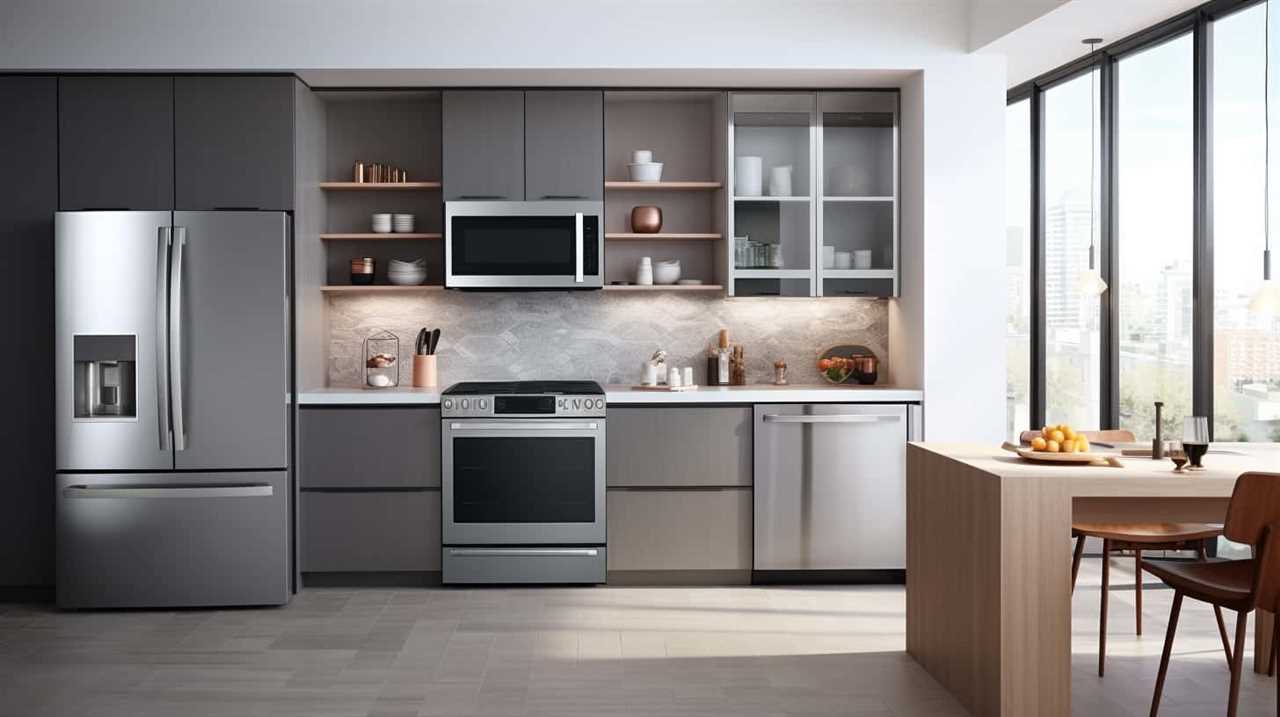
Here are four key points to understand:
- Location: The market value of a house is highly influenced by its location. In areas where appliances are expected to be included, not including them may lower the selling price.
- Competition: In a competitive market, including appliances can give a house an edge over other listings. Buyers often prefer move-in ready homes with appliances included, which can increase the selling price.
- Condition: The condition of the appliances can impact the market value of a house. Newer, high-quality appliances can increase the selling price, while outdated or malfunctioning appliances may lower it.
- Buyer preferences: Buyer expectations and preferences also play a role in determining whether appliances are included in the sale. Understanding the target market and catering to their preferences can influence the selling price.
Considering these market value implications is crucial when deciding whether to include appliances with the house, as it can have a direct impact on the final selling price.
Common Appliances Included in a House
When purchasing a house, we often find common appliances included as part of the deal. Buyers have certain expectations when it comes to the appliances that come with a house, and sellers have their responsibilities to meet those expectations. To give you an idea of what appliances are commonly included, here is a table outlining the typical appliances found in a house:
| Kitchen | Laundry | Other |
|---|---|---|
| Refrigerator | Washing machine | Air conditioning |
| Stove | Dryer | Heating system |
| Microwave | Dishwasher |
These appliances are often included because they are essential for daily living and add value to the property. However, it’s important to note that not all appliances are guaranteed to be included. In the next section, we will discuss appliances that are often excluded from the deal.
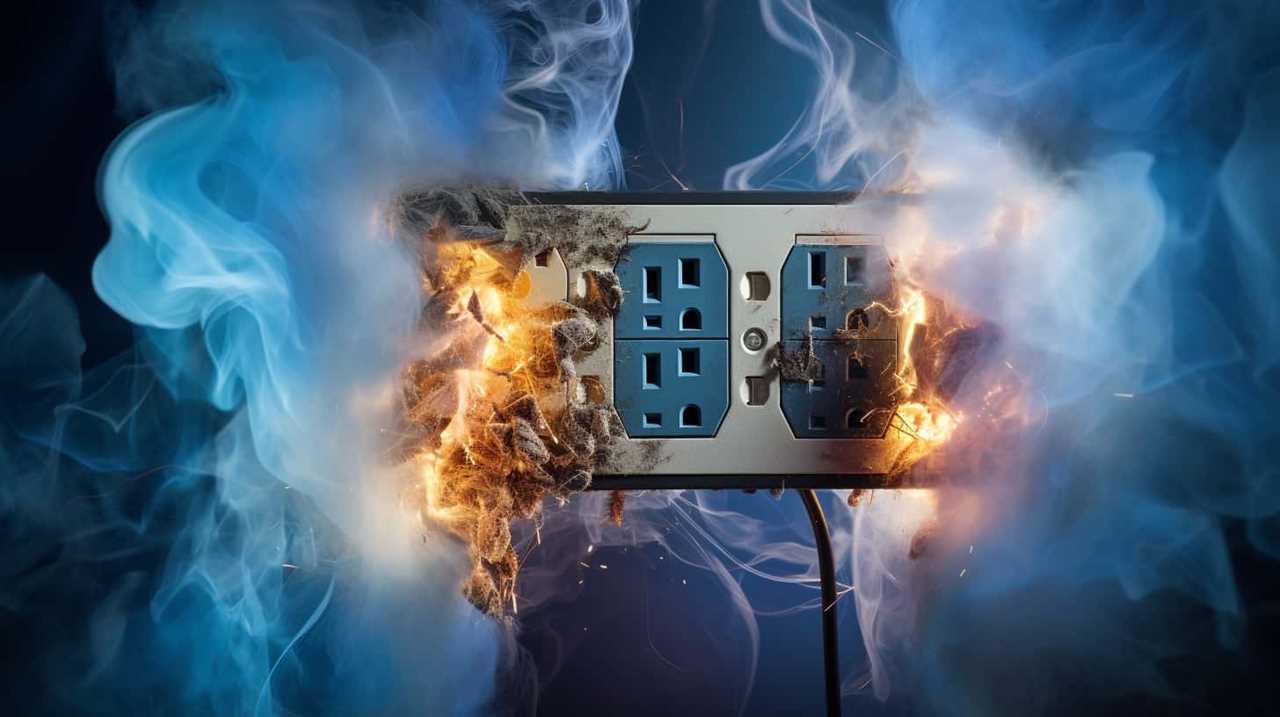
Appliances That Are Often Excluded
Appliances commonly excluded from a house sale may include personal items and specialized appliances. When it comes to buyer’s expectations, it’s important to understand what appliances are typically not included in the sale. Here are four examples of appliances that are often excluded:
- Personal items: Sellers usually take their personal appliances, such as refrigerators, washers, and dryers, with them when they move out. These items are considered personal property and aren’t automatically included in the sale.
- Specialized appliances: Some homes may have specialized appliances, such as wine coolers, built-in espresso machines, or high-end kitchen appliances. Sellers may choose to exclude these appliances from the sale or negotiate a separate price for them.
- Outdoor appliances: Items like outdoor grills, patio heaters, or outdoor kitchen appliances are often excluded from the sale. Sellers may decide to take these items with them or negotiate their sale separately.
- Portable appliances: Portable appliances like microwaves, toaster ovens, or coffee makers are typically not included in the sale unless specifically negotiated.
It’s important for both buyers and sellers to understand their responsibilities regarding appliances to avoid any misunderstandings during the home buying process.
Tips for Assessing Appliance Quality
As buyers, we can assess the quality of appliances by checking their functionality and condition. When assessing appliance performance, it’s important to test each appliance to ensure it’s in good working order. For example, run the dishwasher to see if it cleans dishes effectively, or test the oven to make sure it reaches the desired temperature. Additionally, pay attention to any strange noises or leaks that may indicate underlying issues.
Comparing appliance brands can help you determine which ones are known for their reliability and durability. Look for reputable brands with positive customer reviews and a history of manufacturing high-quality products.
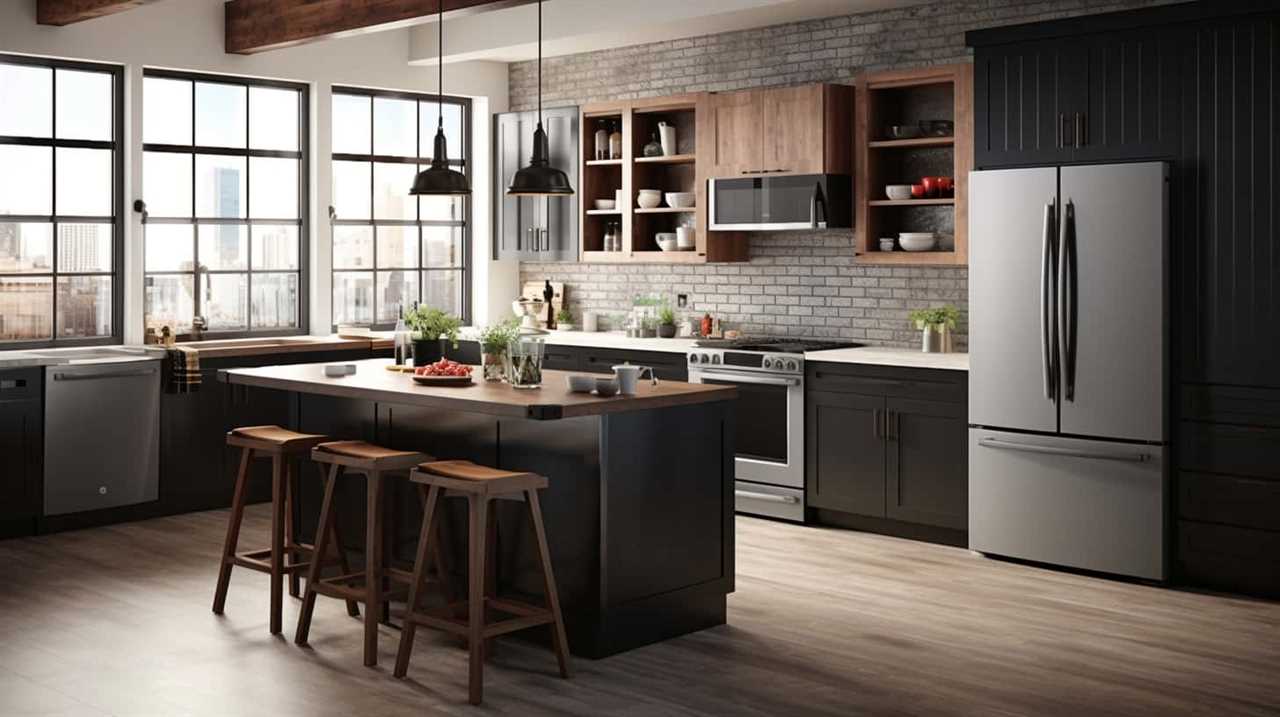
Adding Value With Upgraded Appliances
Upgrading appliances can enhance the value of a house. When considering whether to invest in upgraded appliances, it’s important to weigh the benefits and cost considerations.
Here are four reasons why upgrading appliances can be advantageous:
- Increased Energy Efficiency: Upgraded appliances often come with improved energy-saving features, such as energy-efficient refrigerators or dishwashers. These appliances can help reduce utility bills and are attractive to buyers who value sustainability.
- Enhanced Aesthetics: Upgraded appliances can instantly transform the look and feel of a kitchen or laundry room. Sleek, modern appliances can give a fresh and updated appearance to the space, making it more appealing to potential buyers.
- Improved Functionality: Upgraded appliances often come with advanced features and technologies that can make daily tasks easier and more efficient. For example, a high-end stove with multiple cooking options can attract buyers who enjoy culinary pursuits.
- Competitive Advantage: By investing in upgraded appliances, you can differentiate your property from others on the market. This can give you a competitive edge and potentially lead to a higher selling price.
However, it’s important to consider the cost implications of upgrading appliances. The initial investment may be significant, and it’s essential to evaluate whether the added value will outweigh the expenses. Additionally, it’s crucial to choose appliances that are in line with the overall style and functionality of the house to maximize the return on investment.
Options for Financing Appliance Purchases
When it comes to purchasing appliances for your home, there are various financing options available to suit your needs.
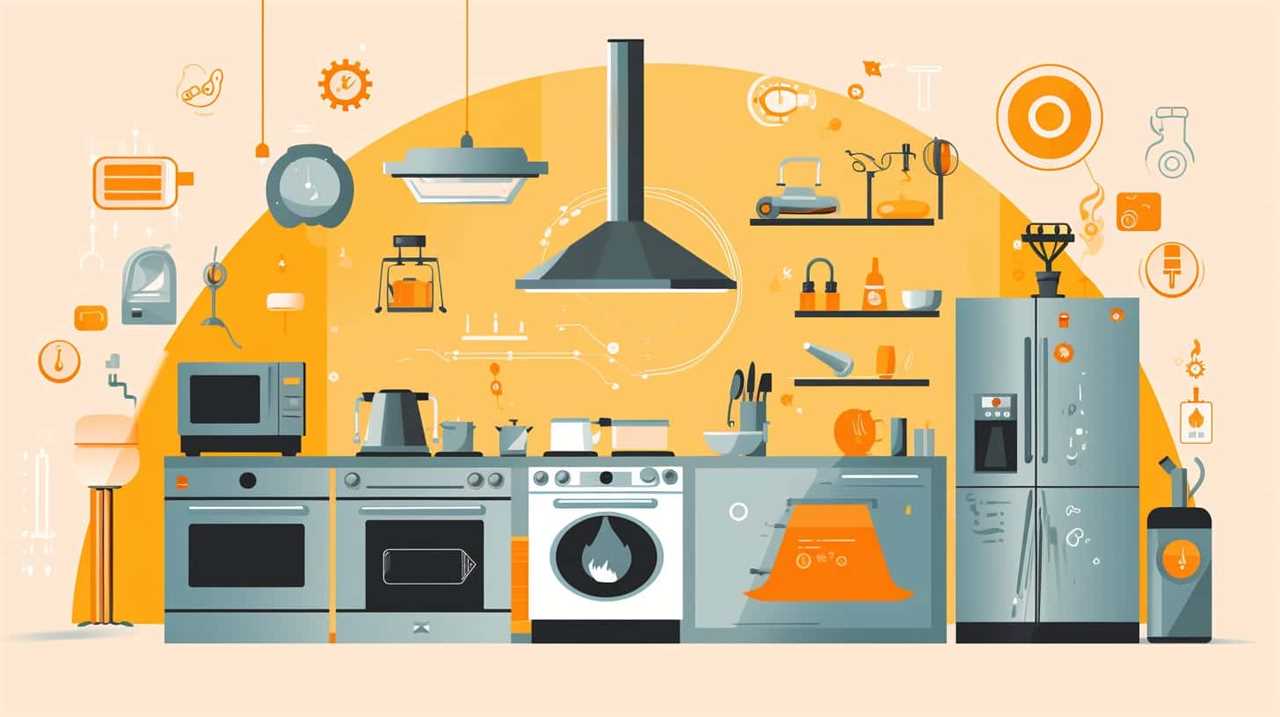
Many retailers offer payment plans that allow you to spread out the cost of your appliances over a set period of time.
These plans often come with different interest rates and terms, so it’s important to carefully consider your options before making a decision.
Financing Options Available
In considering financing options available for appliance purchases, we found a wide range of choices that can help us make the best decision for our needs. Here are four payment options to consider, along with their credit requirements:
- Personal Loan: Personal loans are a popular option for financing appliances. They typically have lower interest rates than credit cards and flexible repayment terms. To qualify for a personal loan, you’ll need a good credit score and a steady income.
- Credit Card: Using a credit card to finance your appliance purchase can be convenient, but it’s important to consider the interest rates and fees. You may need a good credit score to qualify for a credit card with a low interest rate.
- Store Financing: Many appliance stores offer financing options with promotional periods of 0% interest. These financing options may have lower credit requirements, making them more accessible for those with less-than-perfect credit.
- Home Equity Loan: If you own a home, you may be able to tap into your home’s equity to finance your appliance purchase. Home equity loans typically have lower interest rates, but they require you to have substantial equity in your home and good credit.
Payment Plans Offered
To continue our exploration of financing options for appliance purchases, let’s delve into the various payment plans available.
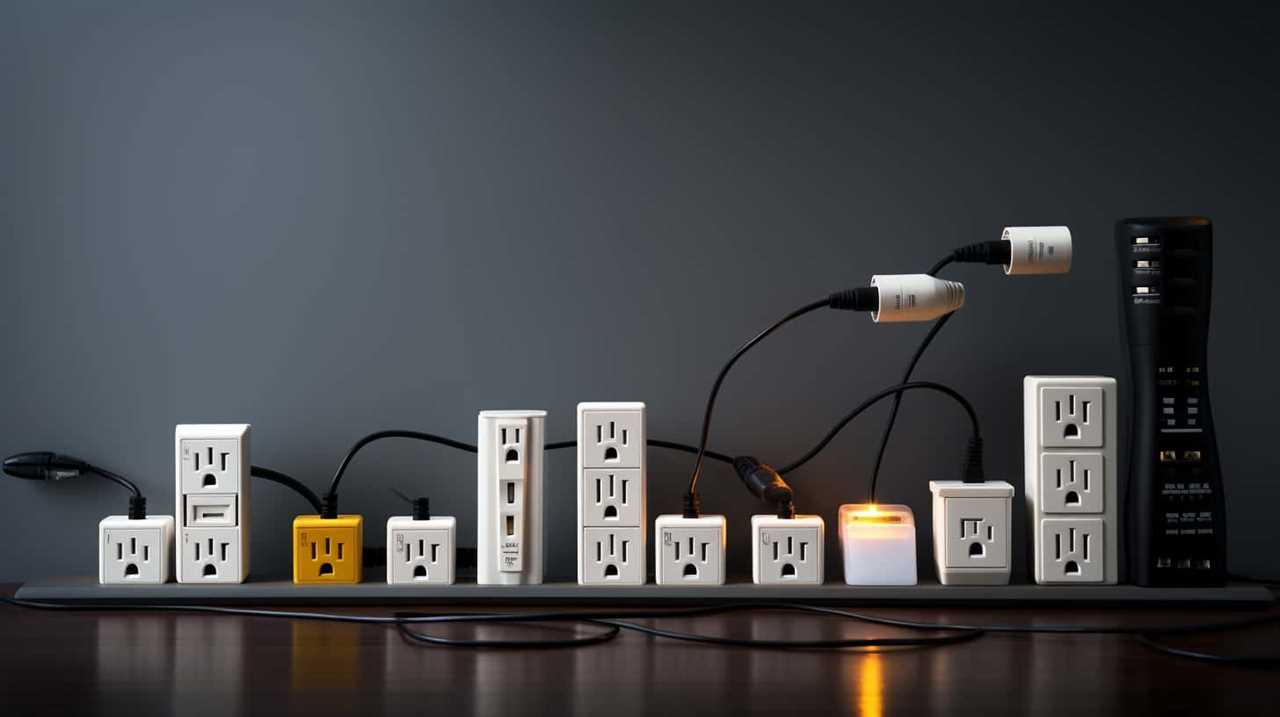
When it comes to buying appliances, there are several payment plans that can help make the purchase more manageable. One common option is to finance the purchase through the retailer. Many appliance stores offer financing programs that allow customers to make monthly payments over a set period of time. These plans often come with competitive interest rates and flexible terms.
Another popular choice is to use a credit card with a low or zero-interest introductory period. This allows customers to spread out the cost of the appliances over several months without accruing interest.
Finally, some homeowners may choose to take out a personal loan to finance their appliance purchases. This option can provide more flexibility in terms of payment length and interest rates.
Interest Rates and Terms
We explore the interest rates and terms for financing appliance purchases. When considering financing options for your appliance purchase, it’s important to compare interest rates from different lenders to ensure you get the best deal. Here are some key points to consider:

- Interest Rate Comparison: Take the time to research and compare interest rates offered by different lenders. This will help you determine which lender offers the most competitive rates, saving you money in the long run.
- Loan Term Flexibility: Look for lenders that offer flexible loan terms. This will allow you to choose a repayment period that suits your financial situation and helps you manage your monthly budget effectively.
- Down Payment Requirements: Some lenders may require a down payment when financing appliances. Consider your budget and choose a lender that offers reasonable down payment options.
- Additional Fees: Be aware of any additional fees associated with the financing agreement. These could include origination fees or early repayment penalties. Read the terms and conditions carefully to avoid any surprises.
Considering the interest rates and terms for financing appliance purchases is essential to make an informed decision.
Now, let’s move on to discussing the legal considerations for appliance inclusions.
Legal Considerations for Appliance Inclusions
Our main concern when it comes to appliance inclusions is the legal considerations.
As buyers, it’s important to understand our legal rights regarding the appliances that come with the house. Generally, appliances that are permanently attached to the property, such as built-in refrigerators or stoves, are considered fixtures and are included in the sale. However, it’s crucial to review the purchase agreement and any additional addendums to determine what appliances are included.

Sellers have legal obligations to disclose any defects or issues with the appliances. They must also ensure that the appliances are in good working condition at the time of the sale. It’s advisable to consult with a real estate attorney or agent to fully understand our legal rights and the seller’s legal obligations when it comes to appliance inclusions.
Conclusion and Final Thoughts
In summarizing the legal considerations for appliance inclusions, it’s important to reflect on the implications and responsibilities that come with buying a house. When it comes to appliances, buyers often have certain expectations regarding what’ll be included in the sale. However, sellers also have responsibilities to ensure transparency and clarity. Here are some key points to keep in mind:
- Buyer’s Expectations: Buyers may assume that appliances, such as refrigerators, ovens, and dishwashers, are included in the sale unless stated otherwise. It’s crucial for sellers to clearly communicate what’ll be included or excluded from the sale.
- Seller’s Responsibilities: Sellers have a responsibility to accurately represent the condition and functionality of the appliances. They should disclose any known defects or issues to buyers, ensuring a fair and transparent transaction.
- Negotiation: Appliance inclusions can be negotiated between buyers and sellers. It’s essential for both parties to clearly communicate their expectations and come to a mutually agreeable solution.
- Legal Documentation: To avoid any confusion or disputes, it’s advisable to include specific details about the appliances in the purchase contract. This can help protect the interests of both buyers and sellers.
Frequently Asked Questions
Can I Negotiate to Have Certain Appliances Included in the Sale of a House?
When negotiating the price of a house, it is possible to request certain appliances to be included. It is important to assess the value of these appliances and ensure they align with the overall value of the property.
What Are Some Factors That Sellers Consider When Deciding Whether or Not to Include Appliances?
Factors that sellers consider when deciding whether or not to include appliances include the condition of the appliances, the age of the appliances, and the potential to negotiate a higher sale price without including them.
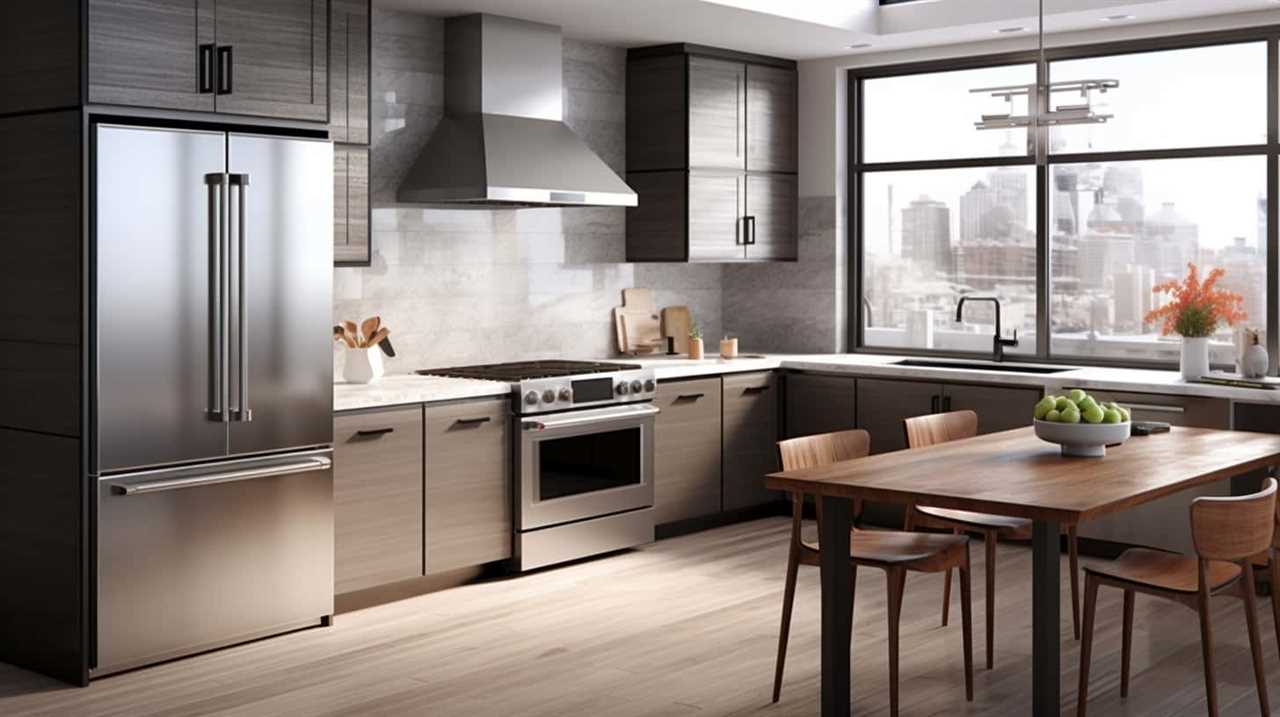
Are There Any Appliances That Are Typically Excluded From a House Sale?
When negotiating price and meeting buyer expectations, it’s important to consider which appliances are typically excluded from a house sale. This can vary, but examples may include washers, dryers, and refrigerators.
How Can I Assess the Quality and Condition of Appliances That Are Included in a House?
How can we assess the quality and condition of appliances included in a house? One way is to inspect the appliances thoroughly, checking for signs of wear, functionality, and any potential issues.
Are There Any Legal Considerations I Should Be Aware of When It Comes to Including Appliances in a Home Sale?
When it comes to including appliances in a home sale, there are legal implications to consider. It is important to be aware of the buyer’s expectations and ensure that everything is clearly stated in the contract.
Conclusion
In conclusion, it’s important to understand that appliances may or may not come with a house, depending on the terms of the sale agreement and negotiations.

While some common appliances are often included, it’s always wise to clarify and negotiate appliance inclusions before finalizing the purchase.
Remember the adage, ‘Don’t count your chickens before they hatch’ – be prepared and informed when it comes to appliances in a home purchase to avoid any surprises or disappointments.


